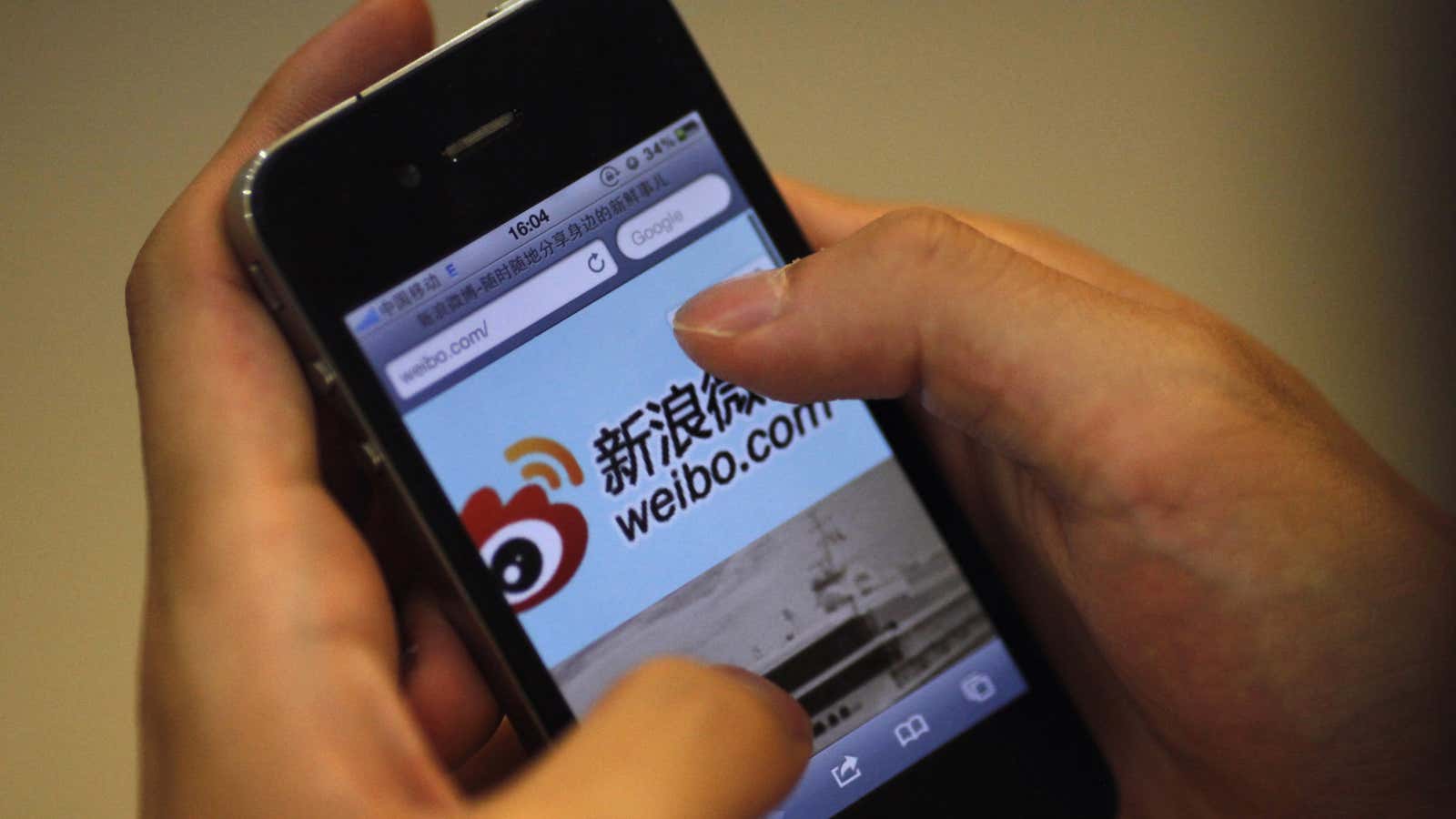Weibo, China’s Twitter-like service, has issued new financial data before it prices its initial public offering, which it is expected to do today before starting to trade tomorrow on the Nasdaq. The company posted a $47.4 million net loss in the first quarter, compared to a loss of $19.2 million in the same period last year. Quarterly revenues of $67.5 million were more than double last year’s, but they fell about 5% from the previous quarter, which the company blamed on seasonal effects from Chinese New Year.
Compare those numbers to Weibo’s partial owner Alibaba, which is preparing an IPO of its own and whose profits more than doubled to $1.35 billion over the same period.
Weibo’s less-than-stellar pre-IPO results will reinforce the doubts of anyone skeptical about its prospects. Weibo, whose name translates to “microblog,” has been eclipsed for some influential users in China by Tencent’s popular WeChat messaging service as the preferred place to discuss current events, and it hasn’t proven very amenable to the kind of brand advertising that is the mainstay of its US counterpart, Twitter.
Bloomberg noted that Weibo’s $17-$19 offer price would mean the company is only worth about half as much as Twitter. It is also burdened by a government censorship discount. Further complicating Weibo’s prospects is the fact that its parent company, Sina Corp, is already listed in the US, and that Alibaba, whose US IPO will eclipse Weibo’s, owns a part of it too.
Scott Sweet of research firm IPO Boutique downgraded his rating on the offering this week. ““Weibo’s book is made up of fast money and that the actual real picture of the demand is highly skewed on the high side,” he told Marketwatch. “There are very large indications coming in from Asia that we in the business call ‘fluff.’ They are artificially high and paint a far rosier picture than reality.”
Reports of Weibo’s possible IPO surfaced immediately after Facebook’s blockbuster acquisition of the WhatsApp messaging service in February, when per-user valuations were sky-high and going public seemed like a no-brainer. But since then the tech sector has seen a dramatic drop-off. The markets may not be kind to companies like Weibo that are showing a noticeable limp as they reach the IPO finish line—especially when Alibaba, by comparison, is positively sprinting.




